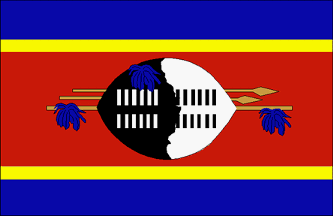2. AFRICA’S LAST ABSOLUTE MONARCHY AND ONE OF THE FEW REMAINING IN THE WORLD
An absolute monarchy is a form of government that gives a monarch supreme authority, unimpeded by written laws, legislature, or customs.
Mswati III is the current monarch of Eswatini. By tradition, the king reigns along with his mother who is known as the “Nndlovukazi” (She-elephant) while the King is referred to as “Nngwenyama” (Lion).
3. When I heard Eswatini I made a what??? face.
Later, I learned that it was the Swaziland I knew about.
Here the reason:
Why did they change Swaziland to Eswatini?

5. Mswati III
Mswati III, byname Ngwenyama Mswati III Dlamini, (born April 19, 1968, Manzini, Swaziland), member of the Swazi royal family who became king of Swaziland in 1986.
Born to King Sobhuza II and one of his wives, Ntombi Twala, he was given the title of Prince Makhosetive (King of All Nations). The young prince was one of more than 60 sons that Sobhuza had with his many wives. Makhosetive received his early schooling in Swaziland and was later sent abroad to Sherborne School in Dorset, England, to continue his education.

King Sobhuza II
According to the Swaziland National Trust Commission, King Sobhuza II had 70 wives, who gave him 210 children between 1920 and 1970. About 180 children survived infancy, and 97 sons and daughters were reported living as of 2000. At his death he had more than 1,000 grandchildren.
6. Umncushu (Porridge)
Umncushu is a classic Swazi dish. The main ingredient is samp, which is dehulled maize kernels pounded until broken. The beans most often used are sugar or jugo beans, but any other dried bean can be used.
The samp and beans are boiled until soft, then mashed together and mixed with ground peanuts. Think of very thick mashed potatoes with bits of corn and beans mixed in and you have umncushu. Other vegetables, herbs, and spices can also be added for extra flavor.
And the crusty bottom stuck to the pot, called skhokho, is the best part! Umncushu can be served plain, or with sides like gravy, and meat stews.

9. Eswatini is not growing. It seems a country with no future. It is now a poor country with low expectancy of life, a high poverty rate at 58.9% and a rate of 77.56% in the level of stress accesing freshwater in 2020.
As you can see in the following graphics more than a third of the population is extremely poor earning less than 2 dollars and 15 cents per day and the growing is at 0.8% with a high rate of migration to the neighboring countries, mainly South Africa. It would need a serious program to revert things for having a prosperous future.
All data and graphs are taken from the World Bank - Eswatini | Data (worldbank.org)
2. Kumina Dances
It is about connecting with ancestors through music, dance, and spirit possession. This is one of Jamaica’s most deeply rooted African cultural traditions.
Interestingly, The roots of the Kumina religious group can be traced all the way back to the Congo.
Kumina is a musical festival that features traditional dances, songs, and drumming. The dancers, dressed in Jamaican attire, perform to the captivating beat of the drums and chanting.
It is believed that during the ceremony, the ancestors being called will come down and possess one of the dancers, creating a mesmerizing and unforgettable display.
With its intricate dance moves, lively music, and vibrant dress, many consider Kumina to be a true work of art and a unique aspect of Jamaican culture.
3. Bob Marley is Jamaica and Jamaica is Bob Marley - The King of Reggae
Jamaican musician Robert Nesta Marley, popularly known as Bob Marley, would have today 78 years old after being born on February 6, 1945. He died of skin cancer at thirty-six years old, he, however, remains wildly celebrated as one of those who popularised reggae, the Jamaican music.
4. Blue Mountain Coffee
Jamaican Blue Mountain Coffee is one of the rarest and most expensive coffees available. However, did you know that the Blue Mountain varietal grows in other regions around the world? It's true! From Kenya to Kona and most importantly right here at Kauai Coffee, Blue Mountain coffee thrives in volcanic soil and at higher altitudes which makes the 3,100 acres and diverse microclimates of the Kauai Coffee farm a perfect home for this delicious and valuable varietal
Introduced to Jamaica in the early 1700s, Authentic Jamaican Blue Mountain comes from a small region of the Blue Mountains on the eastern side of the island and grows at an elevation of 2,000 to 5,500 feet above sea level. The cool mountain temperatures, volcanic soil, and abundant rain give Jamaican Blue Mountain coffee its distinct flavor



 sohonee:
sohonee:





